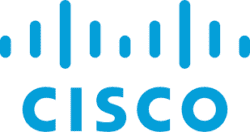Top 10 Big Technology Developers Embracing Blockchain Technology
In recent years, the technology landscape has been undergoing a significant shift, with some of the biggest players redirecting their focus towards the blockchain industry. This move is a testament to the transformative potential of blockchain technology across various sectors. In this article, we will explore the top 10 big technology developers that are making their mark in the blockchain industry, and delve into the implications of this transition.
The top 10 big technology developers that are making their mark in the blockchain industry
1. IBM
IBM has been a trailblazer in blockchain technology, leveraging its expertise to create enterprise-grade blockchain solutions. With the Hyperledger Fabric framework and collaborations with various industries, IBM is at the forefront of fostering blockchain adoption.
2. Microsoft
Microsoft Azure’s blockchain platform has enabled businesses to build, govern, and scale blockchain networks. Their focus on providing blockchain-as-a-service demonstrates their commitment to integrating blockchain into mainstream technological infrastructure.
3. Oracle
Oracle’s blockchain offerings target supply chain management, transaction processing, and more. By integrating blockchain technology into their suite of services, Oracle aims to enhance data security and transparency for businesses.

4. Amazon Web Services (AWS)
AWS entered the blockchain arena with its managed blockchain service. As a cloud computing giant, AWS’s foray into blockchain has the potential to drive widespread adoption by simplifying blockchain implementation.
5. Intel
Intel’s interest in blockchain technology extends beyond its hardware offerings. The company is exploring the use of blockchain for secure data sharing, supply chain provenance, and IoT (Internet of Things) applications.
6. Google
Google’s parent company, Alphabet, has invested in blockchain startups and projects, indicating its intention to explore and leverage blockchain’s potential. Google Cloud also provides tools for blockchain developers and enterprises.
7. Cisco
Cisco has ventured into blockchain to enhance its networking and cybersecurity solutions. Their blockchain endeavors aim to improve trust and security in data sharing and transactions.
8. SAP
SAP integrates blockchain technology into its enterprise resource planning (ERP) systems to improve transparency, traceability, and efficiency across supply chains and business processes.
9. Facebook (Meta)
Facebook’s rebranding as Meta signifies its exploration of the metaverse, a concept with blockchain at its core. As the metaverse evolves, blockchain technology will likely play a pivotal role in creating secure and interoperable virtual worlds.
10. Samsung
Samsung has ventured into blockchain through its Galaxy smartphones, offering blockchain-based services such as secure storage for digital assets and decentralized applications.
The implications of these technology giants moving into the blockchain industry are vast and multifaceted:
- Mainstream Adoption: The involvement of these companies lends credibility to blockchain technology, encouraging its adoption across industries.
- Innovation: The expertise of big tech companies can accelerate the development of innovative blockchain solutions, driving the evolution of the technology.
- Interoperability: As these companies enter the blockchain space, there’s potential for collaboration and interoperability between different platforms and ecosystems.
- Ecosystem Expansion: With their vast user bases, these companies can help expand the blockchain ecosystem by introducing their customers to blockchain applications.
The migration of top technology developers towards the blockchain industry underscores the potential of this technology to disrupt and enhance various sectors. Their involvement not only accelerates the development of blockchain solutions but also paves the way for a future where blockchain is seamlessly integrated into our digital lives.
Also, read – Top 4 Places To Hire Metaverse Developers And Practices To Seek
How Would Blockchain Affect Business in the Future?
Blockchain’s impact on businesses will be transformative. It offers enhanced security, reduced intermediaries, and improved efficiency. Businesses can benefit from streamlined processes, reduced fraud, and improved customer trust. Smart contracts, self-executing agreements with predefined rules, could automate complex business operations, saving time and resources.
Is the Hype for Blockchain Developers Real?
Absolutely. The demand for blockchain developers has surged as businesses recognize the technology’s potential. These developers possess expertise in blockchain platforms, programming languages, cryptography, and consensus algorithms. They play a critical role in designing, building, and maintaining blockchain solutions across industries.
7 Reasons for Growing Demand for Blockchain Developers
- Industry Expansion: As blockchain finds applications beyond cryptocurrency, industries seek developers to create tailored solutions. Healthcare, supply chain, and finance are just a few examples.
- Security Emphasis: In a digital world rife with cyber threats, experts who can design secure blockchain networks are in high demand.
- Evolving Technology: The fast-evolving blockchain landscape requires developers to adapt and create innovative solutions, sustaining the demand for their skills.
- Interoperability Needs: Developers who can ensure different blockchains work seamlessly together are essential as interoperability becomes a priority.
- Smart Contracts: Automation through smart contracts requires skilled developers to code and deploy these self-executing agreements.
- Regulatory Compliance: Understanding legal and regulatory aspects of blockchain is crucial, especially in industries like finance and healthcare.
- Decentralization Trend: The shift toward decentralization calls for developers who can build and maintain distributed applications and networks.
https://twitter.com/i/status/1689755884623220737
What Does the Growth of Blockchain Imply for Aspiring Professionals?
- Diverse Roles: Beyond developers, roles like blockchain architects, consultants, legal experts, and analysts are emerging, catering to different skill sets.
- Skill Diversification: Upskilling in blockchain-related technologies enhances career prospects and makes professionals valuable assets.
- Cross-Industry Mobility: Blockchain expertise is transferable, allowing professionals to explore different sectors and contribute to their transformation.
- Innovation: As blockchain evolves, aspiring professionals have a chance to contribute to groundbreaking innovations that shape the technology’s future.
- Economic Opportunities: The demand for blockchain solutions opens doors for entrepreneurs to create startups that address industry-specific challenges.
Conclusion
In the ever-evolving landscape of technological innovation, blockchain stands as a beacon of transformation, redefining how industries operate and how professionals envision their career trajectories. The integration of blockchain technology into the top 10 computing industries is not a mere trend but a seismic shift that has the potential to reshape the foundations of our global economy.
From the intricate intricacies of financial transactions to the robust resilience of supply chains, blockchain’s decentralized ledger system has demonstrated its ability to inspire trust, mitigate risk, and foster collaboration across industries. As businesses and organizations adapt to this digital metamorphosis, the future promises to be one where transparency and security are not just aspirations, but fundamental pillars of operation.
The effect of blockchain on the business landscape extends far beyond technological advancements. It raises fundamental questions about the nature of trust, the role of intermediaries, and the democratization of information. Through blockchain, businesses are presented with the opportunity to transcend archaic models, reduce inefficiencies, and create more equitable systems that empower stakeholders and consumers alike.
The rise of blockchain developers is not merely hype, but a response to an industry-wide demand for specialized skills that can navigate the complexities of this transformative technology. These developers are the architects of tomorrow’s digital infrastructure, shaping solutions that not only meet today’s challenges but also lay the groundwork for the challenges yet to come.
Aspiring professionals, armed with the knowledge of blockchain, are poised to be the change-makers of the future. The multidisciplinary nature of blockchain technology means that opportunities abound for diverse skill sets to converge and collaborate. This fusion of knowledge has the potential to yield groundbreaking innovations, pushing the boundaries of what was once thought possible.
In this context, the growth of blockchain is not just an evolution, but a revolution that invites us to rethink our assumptions, challenge established norms, and embrace a future where technology becomes an enabler of human progress rather than a barrier. As we stand at the intersection of innovation and industry, the potential of blockchain beckons us to shape a world that is more transparent, more secure, and more interconnected than ever before.
In conclusion, the journey of blockchain from obscurity to prominence is not just a story of technology; it is a narrative of empowerment, transformation, and boundless potential. The fusion of blockchain with computing industries is a testament to the human spirit’s capacity for innovation, collaboration, and adaptation. As we move forward, it is not just about the adoption of blockchain, but about the adoption of a mindset that embraces change, seizes opportunities, and builds a future that is as awe-inspiring as it is promising.
Stay informed with daily updates from Blockchain Magazine on Google News. Click here to follow us and mark as favorite: [Blockchain Magazine on Google News].
Get Blockchain Insights In Inbox
Stay ahead of the curve with expert analysis and market updates.
latest from tech
Disclaimer: Any post shared by a third-party agency are sponsored and Blockchain Magazine has no views on any such posts. The views and opinions expressed in this post are those of the clients and do not necessarily reflect the official policy or position of Blockchain Magazine. The information provided in this post is for informational purposes only and should not be considered as financial, investment, or professional advice. Blockchain Magazine does not endorse or promote any specific products, services, or companies mentioned in this posts. Readers are encouraged to conduct their own research and consult with a qualified professional before making any financial decisions. The featured image used is just a creative depiction of the title and it does not intend to hurt sentiments of any person or institution. If it hurts anyone sentiments, please do not hesitate to reach out to Blockchain Magazine.

 Bitcoin
Bitcoin  Ethereum
Ethereum  XRP
XRP  Tether
Tether  Solana
Solana  USDC
USDC  Dogecoin
Dogecoin  Cardano
Cardano  Lido Staked Ether
Lido Staked Ether  TRON
TRON  Wrapped Bitcoin
Wrapped Bitcoin  Chainlink
Chainlink  Wrapped stETH
Wrapped stETH  Avalanche
Avalanche  Sui
Sui  Stellar
Stellar  Litecoin
Litecoin  Toncoin
Toncoin  Shiba Inu
Shiba Inu  Hedera
Hedera  LEO Token
LEO Token  USDS
USDS  MANTRA
MANTRA  Hyperliquid
Hyperliquid  Polkadot
Polkadot  WETH
WETH  Bitcoin Cash
Bitcoin Cash  Bitget Token
Bitget Token  Ethena USDe
Ethena USDe  Wrapped eETH
Wrapped eETH  Uniswap
Uniswap  Monero
Monero  NEAR Protocol
NEAR Protocol  Pepe
Pepe  WhiteBIT Coin
WhiteBIT Coin  Aave
Aave  Ondo
Ondo  Bittensor
Bittensor  Aptos
Aptos  Internet Computer
Internet Computer  Dai
Dai  Official Trump
Official Trump  Ethereum Classic
Ethereum Classic  Mantle
Mantle  Tokenize Xchange
Tokenize Xchange  OKB
OKB  Gate
Gate  sUSDS
sUSDS  Coinbase Wrapped BTC
Coinbase Wrapped BTC 













